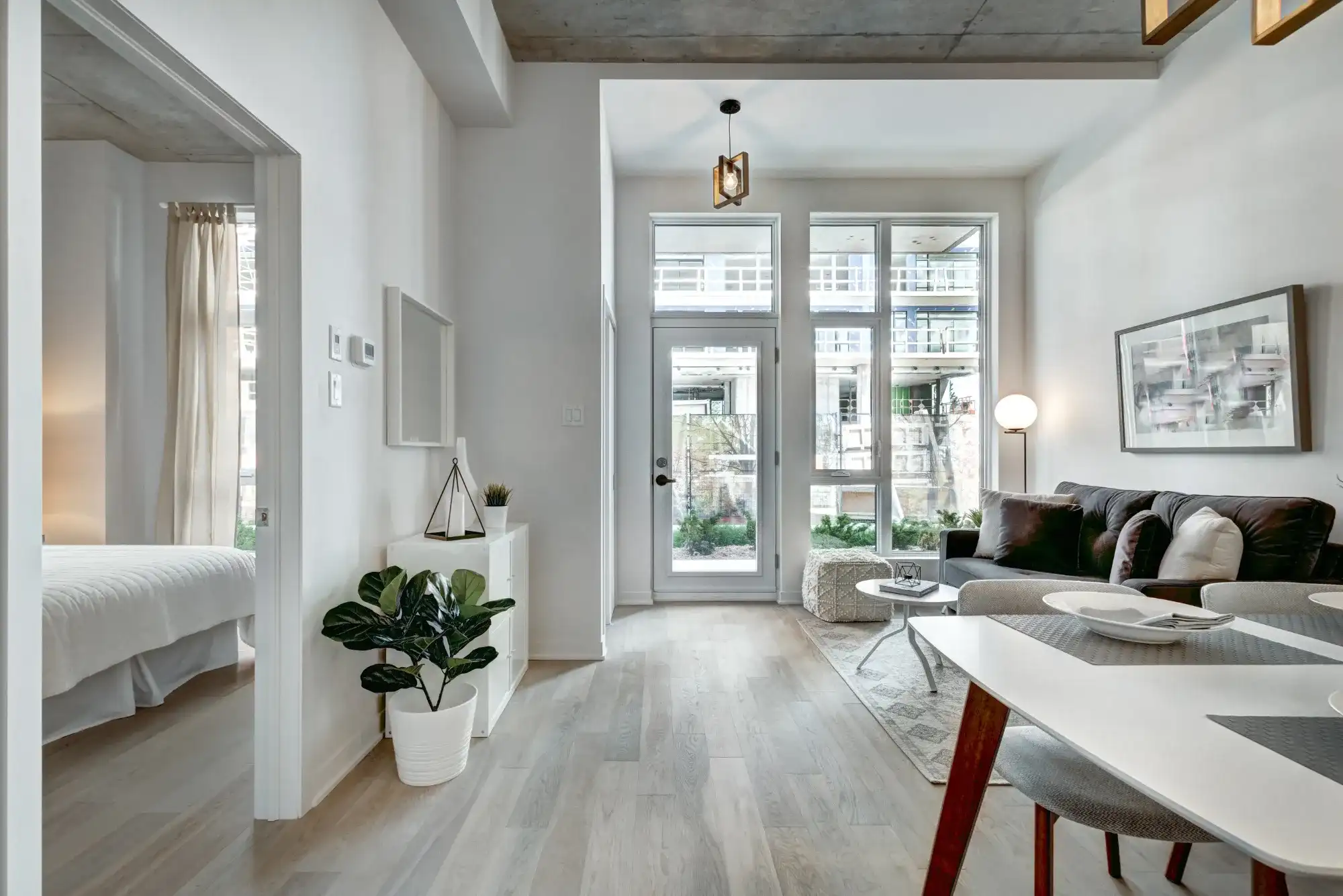

When searching for a new place to live, you might come across terms like “condo” and “apartment” and wonder what sets them apart. While they may look similar on the outside, the distinction lies mainly in ownership, management, and lifestyle experience. Choosing between a condo and an apartment can influence your budget, your flexibility, and even your eligibility for financial products like a fab bank credit card or an emirates nbd personal loan.
In this comprehensive guide, we’ll break down the differences to help you make the right choice based on your needs and preferences.
A condominium, or condo, is a privately owned unit within a building or community. Owners are responsible for their individual units and share ownership of common areas like hallways, gyms, and pools. Condos can be part of high-rises, townhouses, or gated communities.
An apartment is typically a rental unit within a larger building that is owned by a single entity—usually a property management company. Renters lease their units but don’t own them, and the building’s maintenance and policies are managed centrally.
This is the most fundamental difference:
Ownership also affects responsibilities, resale opportunities, and long-term financial planning.
If you’re using a fab bank credit card, this could factor into your budget planning, as condo owners may need to cover sudden maintenance costs.
For homeowners seeking control over their living space, a condo is a more appealing option.
Those applying for an emirates nbd personal loan might find the stability of owning a condo advantageous for approval.
A well-managed HOA and a favorable financing option like an emirates nbd personal loan can mitigate some cons.
If you’re managing multiple financial products like a fab bank credit card and student loans, the flexibility of an apartment might suit your short-term goals better.
Renting can be a smart choice for people who prioritize flexibility or don’t want to be tied down by a mortgage. Monthly costs are generally predictable, and renters aren’t responsible for property taxes or major repairs.
However, rental prices can increase yearly, and there’s no return on your investment. Using tools like a fab bank credit card can help manage monthly expenses if used wisely. For example, some renters use their credit cards to cover rent and earn rewards, provided their landlord accepts credit card payments.
Owning a condo is often a first step into the real estate market. Mortgage payments may be higher initially, but you gain equity over time. HOA fees can be significant, but they often cover shared services and amenities.
If you’re considering financing, an fab bank credit card can help with smaller home improvements or emergencies. Meanwhile, an emirates nbd personal loan can support larger renovations or down payments.
Beyond the financials, lifestyle matters too.
Depending on your income and future plans, either option can be enhanced by proper financial tools. Whether you’re managing day-to-day expenses with a fab bank credit card or financing a purchase with an emirates nbd personal loan, your decision should reflect both lifestyle goals and financial stability.
Condos and apartments might look similar at a glance, but the differences can significantly impact your finances and lifestyle. Choosing the right one depends on your priorities—ownership, flexibility, financial capacity, and long-term plans.
Remember, both options come with trade-offs. Your decision can be supported by the right financial products, whether it’s a fab bank credit card for everyday spending or an emirates nbd personal loan for major investments. Be sure to evaluate your goals, income, and personal preferences to make the most informed choice.

Can Property Lawyers in Dubai Assist with Property Sales?



Beginner’s Guide to Playing Poker Online Professionally


Premium Mobility Expands as Dubai Rent a Car Luxury Becomes Part of Everyday Travel

Dubai’s High Performance Market Surges as Demand for Elite Sports Cars Continues to Rise

Beginner’s Guide to Playing Poker Online Professionally